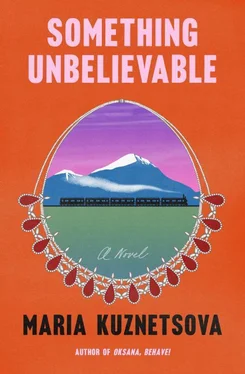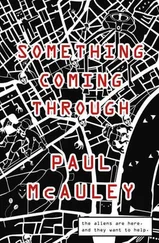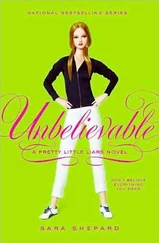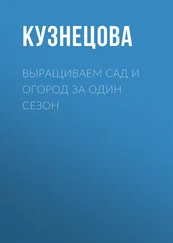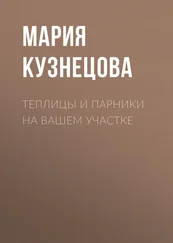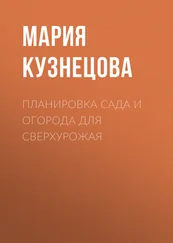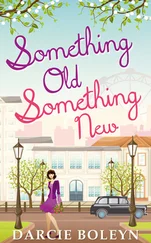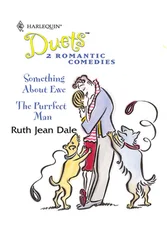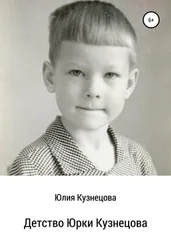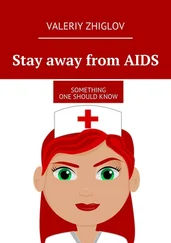Мария Кузнецова - Something Unbelievable
Здесь есть возможность читать онлайн «Мария Кузнецова - Something Unbelievable» весь текст электронной книги совершенно бесплатно (целиком полную версию без сокращений). В некоторых случаях можно слушать аудио, скачать через торрент в формате fb2 и присутствует краткое содержание. Город: New York, Год выпуска: 2021, ISBN: 2021, Издательство: Random House, Жанр: Историческая проза, на английском языке. Описание произведения, (предисловие) а так же отзывы посетителей доступны на портале библиотеки ЛибКат.
- Название:Something Unbelievable
- Автор:
- Издательство:Random House
- Жанр:
- Год:2021
- Город:New York
- ISBN:978-0-52551-191-5
- Рейтинг книги:3 / 5. Голосов: 1
-
Избранное:Добавить в избранное
- Отзывы:
-
Ваша оценка:
- 60
- 1
- 2
- 3
- 4
- 5
Something Unbelievable: краткое содержание, описание и аннотация
Предлагаем к чтению аннотацию, описание, краткое содержание или предисловие (зависит от того, что написал сам автор книги «Something Unbelievable»). Если вы не нашли необходимую информацию о книге — напишите в комментариях, мы постараемся отыскать её.
Something Unbelievable — читать онлайн бесплатно полную книгу (весь текст) целиком
Ниже представлен текст книги, разбитый по страницам. Система сохранения места последней прочитанной страницы, позволяет с удобством читать онлайн бесплатно книгу «Something Unbelievable», без необходимости каждый раз заново искать на чём Вы остановились. Поставьте закладку, и сможете в любой момент перейти на страницу, на которой закончили чтение.
Интервал:
Закладка:
When we stop at a streetlight, two women look down at Tally and coo, because having a baby is apparently an invitation for everyone to talk to you.
But then, from the confused smile on one of the women’s faces, I think she might recognize me.
“Tampon commercial?” I say to her. “You know, it’s as easy as—”
“That’s not it,” she says, cocking her head at me. “Russian prostitute?”
“Is there any other kind?”
“Good work. I loved Seeing Things. ”
“Thank you so much,” I say. “Really.”
The other woman seems to have no idea who I am, but she’s interested in Tally.
“How old is this darling?”
“Almost six months.”
“They’re already a lot of fun at six months, aren’t they? Watch out, the next thing you know, she’ll be going off to college,” she says.
“You spend the early years being like, when will she walk, when will she talk? And then the next ten you just want them to sit down and shut up,” the other one says.
“I’ll try to slow down,” I tell them, and as I push Talia ahead of them, not even that annoyed by the assumption that everyone will go to college, I hear her say one more thing.
“Congratulations!”
I thank her and push on, past a father and his two sons. It’s been a while since I was congratulated for having a daughter. I thought she was too old for that, and it feels nice. Tally paid the woman no attention, or me, really, and continues to stare out with her mouth half-open. Over the last few months, my daughter has gotten more entranced by the outside world than by me, not as desperate for me to hold her anymore.
She’s becoming less like the baby I was, if Mama described me correctly. “Always wanting to be held,” Mama had said, shaking her head. “If I left the room for a moment, you would scream bloody murder! I don’t think I emptied my bladder until you were two. It was awful.” But I see now that she didn’t think it was awful at all, that maybe she even longed for a time when I needed her like that, or at all.
Talia does give me a smile, though, when we pass the dog park, probably more at the big shaggy gray dog than me, but it does melt me like they said it would, her smiles always melt me now even though there was a time when I didn’t think this would ever be possible, when I was convinced I must have been immune to her. How did it happen? As Baba would say, it’s something unbelievable. This sweet little girl, who just months ago felt like a gooey alien in my arms, became my favorite little person, the only one I can really talk to besides said grandmother, the only one whose eyes hide nothing and who understands me. I pull her little blanket up to her chest, mostly so she can suck on it more easily. Baba is probably boarding her plane by now. The sun is rising but it’s still pretty crisp, too crisp for early September, but I’m ready for the change, the summer has been endless.
“Endless summer, am I right, Tally?” I say. “Though I guess you’ve never known another season, have you? You have nothing to compare it to. Well, I promise you’ll have some good summers ahead, but this one has just been weird.”
My daughter is staring out at the sunlight, the people passing by, the boats chugging down the river, the taxis honking, the surly girl at the overpriced vintage boutique on the corner arranging the mannequins in the windows to lure customers in. I never woke up before ten in the morning until my daughter was born, and never went to bed before two, but now, I have to say I like this schedule. There’s a hopefulness to the mornings, the day spread out before you like a cozy blanket, the sense that there’s plenty of time to do it all, to make some decisions. Time to start over, to unfuck everything you had fucked.
I don’t realize how far we’ve gone until I see the water, the Hudson gleaming in front of us. We’re miles from the apartment now, but it doesn’t matter, I could use a long walk home. I push her up to the rocks that overlook the dark-blue water, a few sailboats drifting along as the sun rises higher in the sky. It’s not swimming water, no, but a teenage couple kicks at it, their shoes piled up behind them. A big cargo ship passes by, covering one of the sailboats for a moment. Usually, when I take her this far out, my daughter gets tired and starts to fuss. But this time, she’s not complaining. This morning, as I push her toward the water, she likes it. She looks from my face to the sun and back at the water again.
“What do you think, darling?” I ask. And then I stop to watch her taking it all in.
After Mama’s first and only trip to the sea with me and my grandmother, we returned to Kiev to see my grandfather, but we got off to a rough start. When he picked us up at the station, he gave my grandmother a once-over and said, “That’s a lovely bracelet,” and she clamped a hand to her wrist like she had been burned, because she had forgotten to take off what was no doubt a gift from her latest suitor. “Just a silly thing I got from a stand by the water, it’s nothing,” she had said, charging ahead with her suitcase.
But that evening, after a stilted dinner in the formal dining room with the too-big chandelier instead of the cozy kitchen just to please my grandfather, he and I were alone on the gold-framed balcony while Mama and Baba cleaned up. I thought he must definitely know about Baba’s affairs and worried that he might even ask me about it. He was quiet for an interminable amount of time, watching the apartment buildings across the street and the Dnieper in the distance and the sky turning this beautiful pink and orange as the sun inched toward the horizon like he could do it until I was an old woman myself, while we heard the clanking of my grandmother and Mama clearing the plates on the other side of the glass door.
“Your mother loves you, Natasha. You must take care of her,” he said.
“How?” I said. “How exactly do I do that?”
“You do what anyone can in this situation,” he said with a shrug. “You do your best.”
A moment earlier I had felt sorry for my grandfather, but now I was angry. I thought of all of his thoughtful critiques of my acting, and expected him to tell me what to do in the same way. “More feeling at the end,” he could have said. “Give those tears everything you’ve got. But also, honor the complexity of your role.” But he came up empty this time.
“That’s it? That’s all the advice you have for me after, what, seventy years of living? Mama’s going to die, and all I can do is—my best?”
He winked at me and laughed. “If I live any longer, I’ll have even less advice to give.”
Now I laughed, too, forgiving him, feeling choked up all of a sudden. We looked over our shoulders to where my mom was throwing back her head and cracking up at something my grandmother said. Mama stopped in her tracks and looked right at me, her smile disappearing like she was caught doing something. Then she stuck her tongue out at me and laughed again. She was stunning with the dusky light falling on her wavy hair, her face suntanned and fresh from the sea, and I knew I would never be half as beautiful as she was, even if I spent my whole life trying. I turned back to my grandfather.
“One more thing,” he said, and I thought he’d come up with some profound advice at last, something meaningful about the eternal bond between children and their parents, but he didn’t say another word, he just pointed at the sky, where the sun was finally setting below the buildings, casting the river in its early summer evening glow. He opened the door and Mama and Baba stopped what they were doing to join us, and we all watched the sun dip down until we could only see a hint of its bright, burning light.
Читать дальшеИнтервал:
Закладка:
Похожие книги на «Something Unbelievable»
Представляем Вашему вниманию похожие книги на «Something Unbelievable» списком для выбора. Мы отобрали схожую по названию и смыслу литературу в надежде предоставить читателям больше вариантов отыскать новые, интересные, ещё непрочитанные произведения.
Обсуждение, отзывы о книге «Something Unbelievable» и просто собственные мнения читателей. Оставьте ваши комментарии, напишите, что Вы думаете о произведении, его смысле или главных героях. Укажите что конкретно понравилось, а что нет, и почему Вы так считаете.
